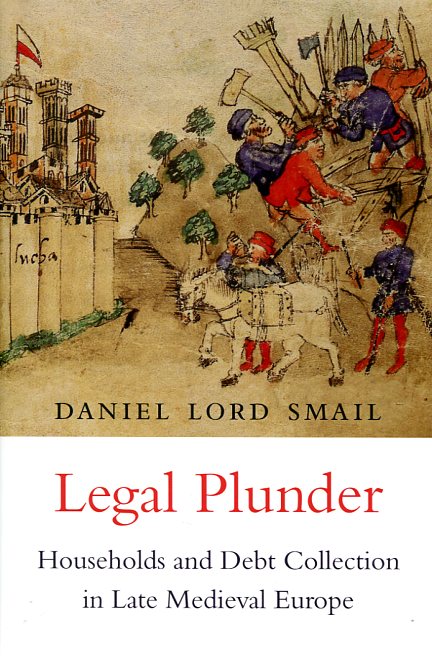Legal plunder
households and debt collection in late Medieval Europe
- ISBN: 9780674737280
- Editorial: Harvard University Press
- Fecha de la edición: 2016
- Lugar de la edición: Cambridge(MSS). Estados Unidos de Norteamérica
- Encuadernación: Cartoné
- Medidas: 23 cm
- Nº Pág.: 317
- Idiomas: Inglés

As Europe began to grow rich during the Middle Ages, its wealth materialized in the well-made clothes, linens, and wares of ordinary households. In a world without banking, household goods became valuable commodities that often substituted for hard currency. Pawnbrokers and resellers sprung up throughout European cities, helping push these goods into circulation. Simultaneously, a harshly coercive legal system developed to ensure that debtors paid their due. Legal Plunder explains how the vigorous trade in goods that grew up in fourteenth- and fifteenth-century Europe entangled households in complex relationships of credit and debt. Acting in the interests of creditors, sergeants of the law were empowered to march into debtors' homes and seize belongings equal in value to the debt owed. These officials were cogs in a political machinery of state-sponsored plunder. As Daniel Smail shows, one of the common activities of medieval law courts was debt recovery, and court records offer some of the most vivid descriptions of material culture in this period, providing insight into the lives of men and women living in a world on the cusp of modern capitalism. Then as now, money and value were implicated in questions of power and patterns of violence.









